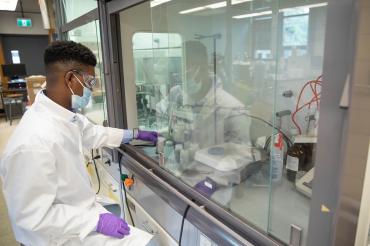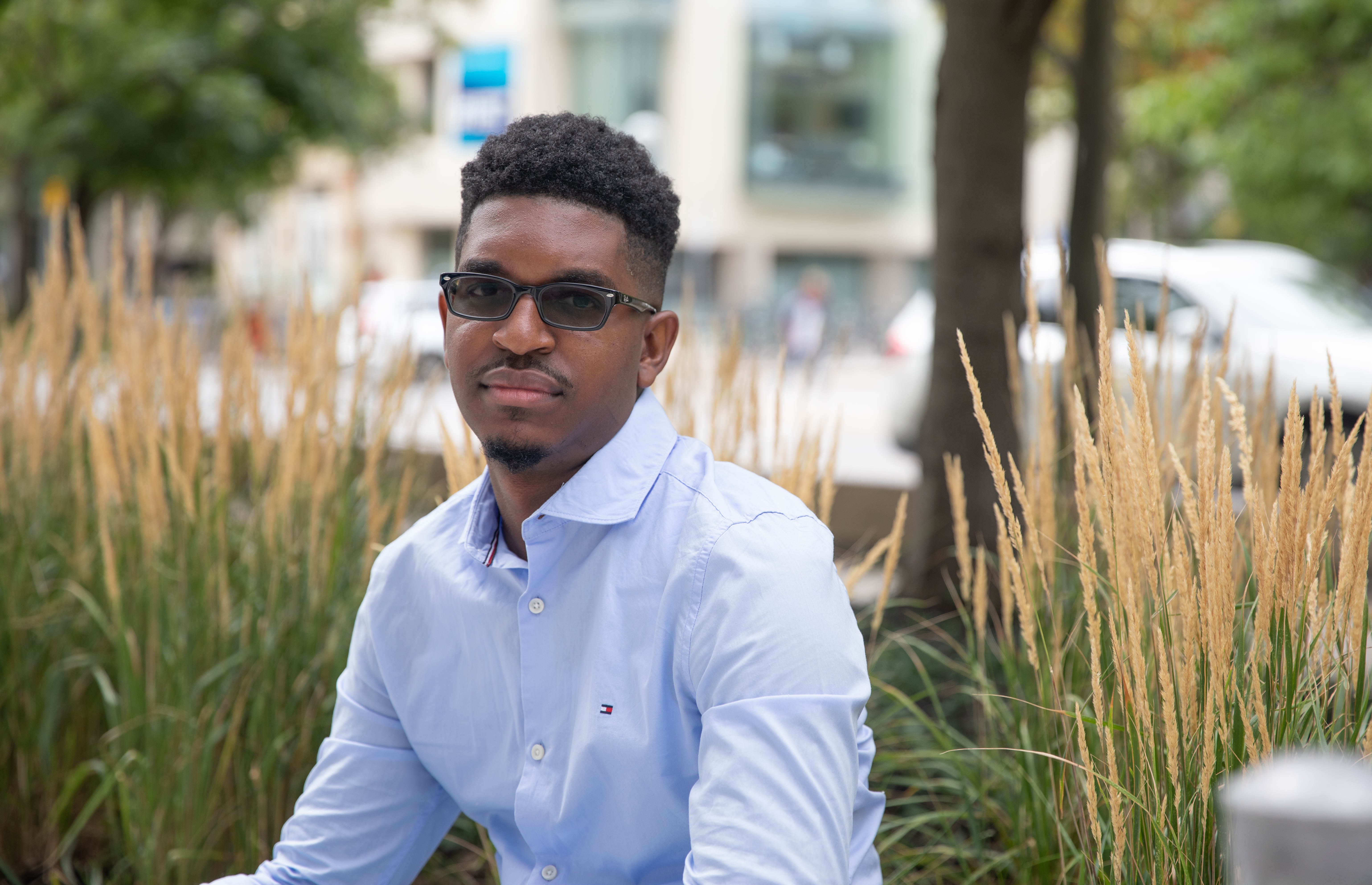PhD student aims to reduce pulp and paper's environmental footprint, inspire underprivileged youth

Published: September 13, 2022
For Gaius St. Marie, a doctoral degree in chemical engineering and applied chemistry at the University of Toronto is not only a way to pursue his passion for science, technology and sustainability – but also to serve as a role model for his community.
For his PhD thesis, St. Marie will work with an industrial consortium that includes many pulp and paper producers to help the industry lower its environmental impact by understanding the factors that cause fluctuations in the composition of black liquor, a mixture of spent chemicals and organic matter produced as part of the pulping process.
While black liquor is typically recycled, fluctuations in its composition can hinder this process. By developing a model to help pulp and paper mills predict and account for these fluctuations, St. Marie hopes to give them the tools to be even more efficient in their use of resources.
“Pulp and paper is one of the largest industrial sectors in the world,” says St. Marie, who will be supervised by Assistant Professor Nikolai DeMartini.
“As an industry based on renewable resources, this sector plays an important role in sustainable development. I want to help support that development by informing it with good science.”

Gaius St. Marie says he wants “to serve as an inspiration to any young child in an underprivileged community” (photo by Tyler Irving)
St. Marie is one of two recipients of this year’s IBET Momentum Fellowships, along with fellow chemical engineering graduate student Oseremen Ebewele.
The fellowships provide support and build a network for Indigenous and Black graduate students – two groups that are significantly underrepresented across both academia and the engineering profession. Fellowship recipients receive financial support, mentorship, training and networking opportunities to foster a robust professional community.
“Young Black adults like myself need to see that there are opportunities for us in society,” St. Marie says. “My dream is to serve as an inspiration to any young child in an underprivileged community, to show them that any situation in life is merely a stepping-stone to future success.”
St. Marie grew up in the Caribbean country of St. Lucia. In 2015, he moved to Halifax to complete an undergraduate degree in chemistry at Saint Mary’s University, graduating magna cum laude.
At Saint Mary’s, he completed a research thesis in sustainable chemistry, supervised by Professor Christa Brosseau. The work involved experimenting with new types of bio-based materials that can serve as substrates in surface enhanced raman spectroscopy (SERS), an analytical technique that can be used to detect biomarkers of disease, among other applications. He was also able to work on a project with Alpha Chemical, a pharmaceutical and biodiesel company based in Nova Scotia.
Pursuing a PhD in chemical engineering will help St. Marie fulfill his goal of becoming a research scientist.
“Graduate studies are one of the most effective ways to learn critical thinking skills. You need to develop good hypotheses, explain your research to those who don’t yet understand it, and troubleshoot ideas as you go,” he says.
“Being at U of T Engineering will surround me with like-minded individuals who share the same research interests and ambitions, providing valuable opportunities for collaboration.”
St. Marie says he is very grateful for the opportunities provided by the IBET Momentum Fellowship, and is looking forward to joining the community of recipients, which now includes four researchers from U of T Engineering and many more at other institutions across Ontario.
“The IBET Momentum Fellowship shows that with passion and determination, I can pursue my educational dreams,” he says. “I am thankful to my support system, which is my family and God, for this opportunity.”
After graduation, St. Marie hopes to pursue post-doctoral studies and eventually become a professor himself.
“The PhD program makes your mind into an idea factory,” he says. “This factory is fed by reading the work of others, and by your own previous experience, including ideas that didn’t work out. It will provide an array of skills that are transferable across different sectors, and hopefully set me up to create my own research lab one day.”


